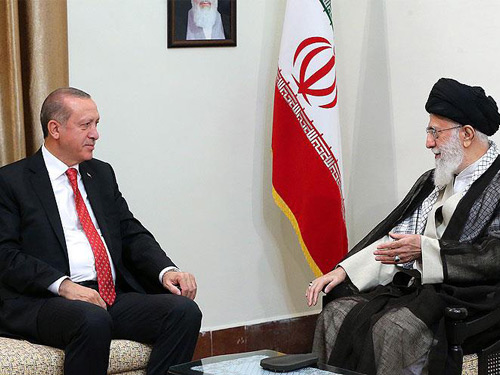Levent Kenez/Stockholm
Zahid Sobacı, director-general of Turkish Radio and Television (TRT), Turkey’s state broadcaster, spoke on October 9 at the opening ceremony of the new academic year at Uludağ University, where he had previously worked as an academic. During his speech Sobacı outlined TRT’s upcoming projects, including the announcement of plans to launch Farsi-language broadcasts. A segment of his remarks that sparked controversy was later censored on the university’s official YouTube channel.
In his one-hour speech, Sobacı said, “Our messages are reaching the international community through our international channels, primarily TRT World and TRT Arabi. We have added digital news platforms such as TRT German, TRT Russian, TRT Balkan, TRT Africa, TRT French and TRT Spanish. By the end of this year, TRT Farsi will be launched.” Following this, Sobacı emphasized twice that “we must disturb Iran.” The portion of his speech regarding Iran was subsequently edited out and removed from the university’s YouTube page after a backlash.
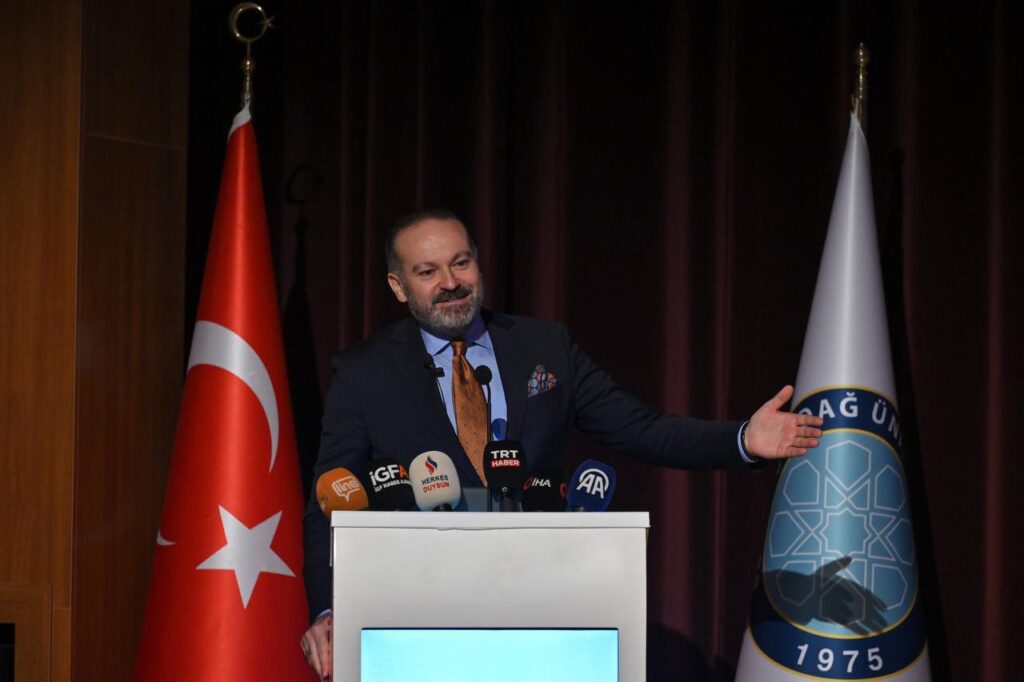
TRT serves as a propaganda tool for the ruling party in Turkey. The news programming of TRT, which has gained popularity through highly rated dramas, is often criticized by the opposition for focusing solely on news related to the ruling Justice and Development Party (AKP) and President Recep Tayyip Erdogan. The government’s strict control of the media is a policy that Erdogan prioritizes, and only those with strong loyalty to him are able to hold leadership positions in state media. Those at the helm of these institutions do not express personal opinions or initiatives on their own given Erdogan’s one-man rule in the country. This raises the question of whether Sobacı inadvertently revealed a directive regarding Iran, or if there will be a shift in Turkey’s foreign policy.
Homeland Party (VP) Chairman Doğu Perinçek, Erdogan’s neo-nationalist and militant ally, was quick to respond. “If TRT adopts a broadcasting line that will ‘disturb Iran,’ it indicates that a very dangerous plan is on the agenda,” he said, claiming that this plan was centered around the US and Israel.
He also warned Erdogan and his ally, Nationalist Movement Party (MHP) leader Devlet Bahçeli. “We know that the director general of TRT will not promote a broadcasting line outside the plans and directives of the government,” Perinçek stated. He said the recent increase in anti-Iran rhetoric from speakers directed by the government during television programs had not gone unnoticed. Perinçek also asserted that the government is being pushed into a very dangerous game.
Far-right and anti-immigrant Victory Party (ZP) Chairman Ümit Özdağ also took to X to share his views, stating, “It seems that the AKP has decided to take a position against Iran in collaboration with the US and Israel. TRT will begin broadcasts against Iran. We find this decision WRONG. However, aside from the decision being wrong, such a decision should not be announced in front of the cameras. … After 22 years, you still haven’t learned how to govern the state,” he wrote.
Tekin Bingöl, deputy chairman of the main opposition Republican People’s Party (CHP), also reacted by asking whether it was up to Sobacı to determine Turkey’s foreign policy. He criticized the lack of seriousness, merit and diplomatic tone on the part of the government, calling for Sobacı’s resignation. Bingöl directed his criticism at Foreign Minister Hakan Fidan.
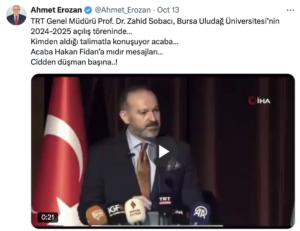
The head of the nationalist İYİ (Good) Party’s international relations section, retired ambassador Ahmet Erozan, also asked on X who Sobacı received his instructions from. He questioned if the message was directed at Fidan. Erozan’s mention of Fidan stems from the fact that Fidan is known in diplomatic circles for his affinity towards Iran.
However, there are currently no concrete signs that the Erdogan government is making a policy shift regarding Iran. Furthermore, there is no coverage in TRT’s broadcasts that could be considered anti-Iran. But Turkey is unsettled by Iran’s lack of support in its fight against the Kurdistan Workers’ Party (PKK), which it designates as a terrorist organization, as well as Iran’s assistance to the PKK through proxies in Iraq and its military and financial support for the regime in Syria.
Despite Fidan’s positive approach to Iran, the Turkish military’s confidence in Iran remains weak. Defense Minister Yaşar Güler, speaking on CNN Türk on May 2, said they have provided information about PKK members crossing from Turkey into Iran but that Iranian authorities did not cooperate. “We talk with our Iranian friends. We say, ‘They [terrorists] crossed from here, went there, we are following them.’ We look at images from UAVs. Our Iranian friends respond, ‘We looked there, there is no one.’ This is not a good approach. Of course we are uncomfortable.”
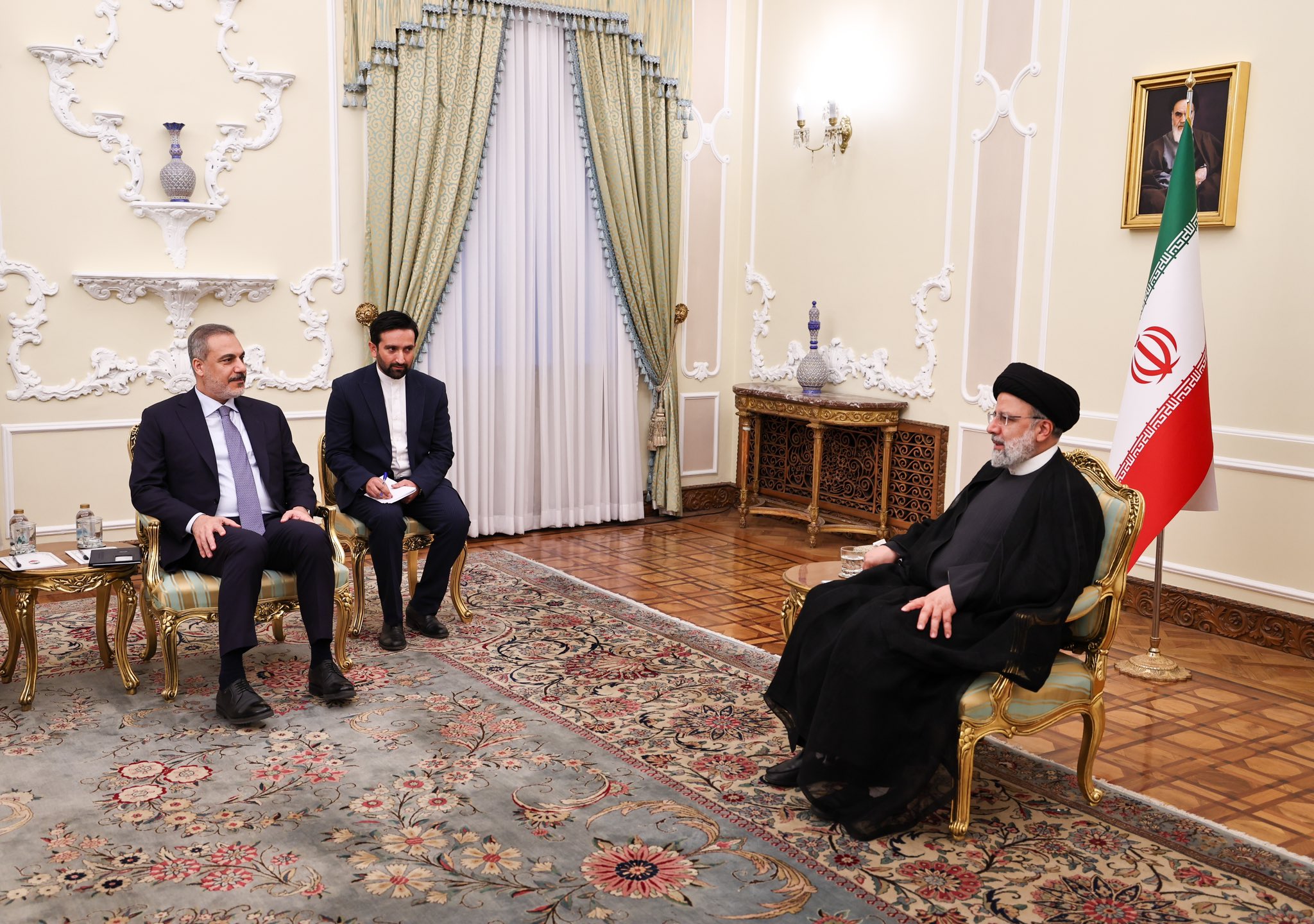
Nordic Monitor previously reported that Iran has been expanding its diplomatic and consular presence across Turkey by acquiring and constructing additional properties, a move facilitated by the favorable stance of Turkish government, which has granted greater latitude to Iran’s intelligence and terror-sponsoring networks. Iranians have increasingly become leaders in establishing foreign-owned businesses in Turkey, despite the modest trade volume between the two countries. Many of these enterprises, managed by Iranians, are involved in acquiring banned or restricted materials for Iran. They also facilitate the distribution of funds and provide logistical support for Iran-aligned terrorist entities and proxy factions on a global scale.
Erdogan played a central role in two major incidents involving Iran in the past.
The first significant moment revealing collusion occurred in December 2013 when then-prime minister Erdogan and several cabinet members were implicated in widespread corruption investigations. These investigations exposed their involvement in laundering Iranian state funds through Turkey’s banking system, revealing a complex network of illicit financial activities.
At the center of the corruption was Turkish-Iranian national Reza Zarrab, who bribed senior officials, including cabinet ministers, and developed close ties with Erdogan and his wife, Emine. After Zarrab’s involvement became public knowledge, Erdogan intervened to obstruct the prosecution by removing lead prosecutors and investigators from the case. All the suspects, including Zarrab, were subsequently released with the help of judges appointed by Erdogan’s government.

Zarrab was arrested by the FBI in Miami in 2016 on charges of orchestrating hundreds of millions of dollars in transactions for the Iranian government, along with money laundering and bank fraud.
He later struck a plea deal, testifying that President Erdogan instructed Turkish state banks to participate in the multi-billion dollar scheme for kickbacks.
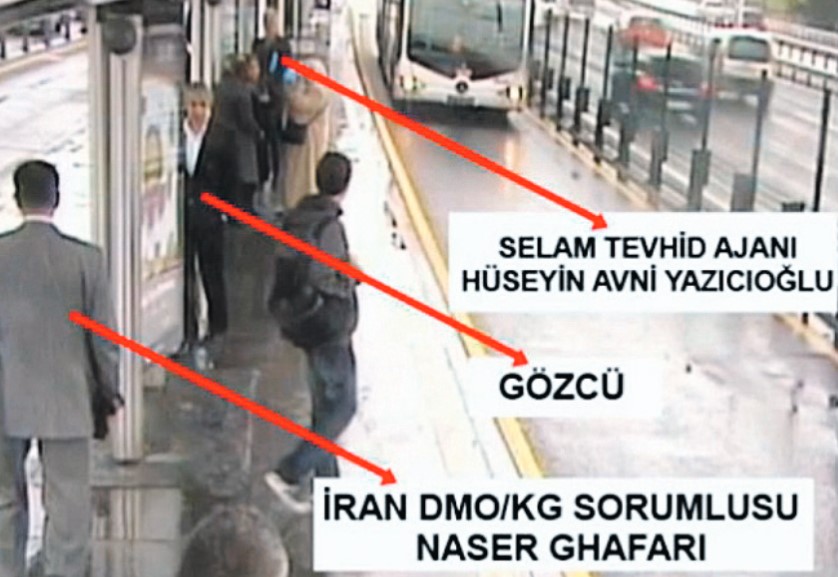
In the most notorious case, an investigation called Tawhid Salam (Tevhid Selam in Turkish), which was launched by Turkish prosecutors in 2011, uncovered a sophisticated espionage network run by the IRGC’s Quds Force in Turkey and exposed the extent and depth of infiltration in Turkish institutions by Iranian elements. The investigation also revealed Erdogan’s ties to IRGC generals and how former intelligence chief Fidan worked closely with the Iranian regime.
As in the corruption investigation, the police officers and prosecutors who investigated Tawhid Salam were accused of attempting to overthrow the government and were sentenced to lengthy prison terms.
In the event of a sudden and sharp policy shift by Erdogan towards Iran, it is likely that Iran could undertake initiatives against Turkey in the region. Additionally, there may be the potential for the disclosure of sensitive information regarding Erdogan and his family.
Meanwhile, Ahmad Noroozi, president of the Islamic Republic of Iran Broadcasting World Service, took to X to condemn Sobacı’s remarks. He stressed that “while Iranian media is dedicated to reporting on regional developments — especially the genocidal war waged by the Zionist regime in Palestine and Lebanon — it will not remain silent in the face of provocative statements directed at Iran.”
“We hope that Turkish officials will appropriately condemn and clarify these remarks,” he added

